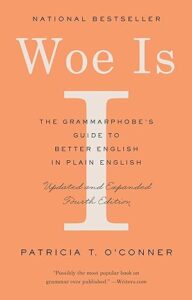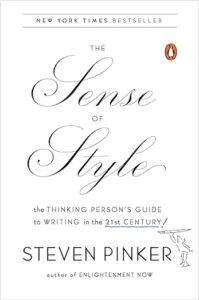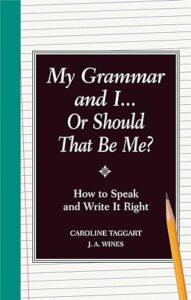Adverse vs. Averse: What’s The Difference?
Today, let’s crack the code on two words that often get muddled:
“Adverse” and “Averse.”
They sound like twins, don’t they?
But…
Here’s the twist…
Their meanings are worlds apart, and they fit into different puzzles.
We’re going to sort out this mix-up together.
Let’s roll!
Short answer
Picture “Adverse” as something that’s bad news, like a hurdle. Imagine playing a video game, and suddenly there’s a wild storm making your character’s journey tougher – that’s adverse in action!
Now, flip to “Averse.” This one’s about having a strong thumbs-down for something. Think of it like this: you see broccoli on your plate and you’re like, “No way, not happening!” If you’re averse to broccoli, you’re definitely not giving it a chance.
So, remember: “adverse” is about nasty situations, and “averse” is your personal no-go zone. Keep this in your back pocket, and you’re all set to pick the right word every time!
Definition of “Adverse”
Adverse: This word is an adjective, which means it describes something. “Adverse” is used to talk about situations, conditions, or effects that are harmful or unfavorable. It’s like the villain in a story that creates obstacles or problems.
10 Ways to Use “Adverse” in Your Daily Life
Weather:
“The picnic was canceled due to adverse weather conditions.”
Health:
“Be aware of any adverse reactions to this new medication.”
Feedback:
“Despite the adverse criticism, she continued to pursue her dreams.”
Sports:
“The team played well, even in adverse conditions.”
Gardening:
“Adverse soil conditions can affect the growth of plants.”
Travel:
“Our flight was delayed due to adverse wind conditions.”
Studying:
“Adverse lighting in my room makes it hard to read.”
Environment:
“They’re campaigning against the adverse effects of pollution.”
Economy:
“The stock market is experiencing an adverse trend this month.”
Cooking:
“Adverse temperatures can spoil food faster than expected.”
Definition of “Averse”
Averse: Also an adjective, “averse” describes a strong feeling of opposition, dislike, or reluctance towards something. It’s like having a personal “no thanks” attitude towards certain things.
Using “Averse” in Everyday Life
Here’s how you can use “averse” in ordinary conversations:
Food Preferences:
“I’m really averse to trying exotic foods; I like to stick to what I know.”
Hobbies:
“Are you averse to outdoor activities, or would you like to go hiking this weekend?”
Learning:
“My brother is averse to reading; he prefers watching videos.”
Technology:
“Grandma is averse to using smartphones; she finds them too complicated.”
Music:
“I’m not averse to classical music, but I prefer pop.”
Change:
“He’s averse to making big changes in his life, preferring stability.”
Risks:
“As an investor, I’m averse to high-risk opportunities.”
Exercise:
“Are you averse to morning workouts? We could try evenings instead.”
Travel:
“She’s not averse to traveling, but she hates flying.”
Fashion:
“I’m averse to wearing bright colors; I stick to neutrals.”
Practical Tips for Distinguishing Between “Adverse” and “Averse”
| Aspect | Adverse | Averse |
| Definition | Harmful or unfavorable conditions or effects | Strong dislike or opposition to something |
| Part of Speech | Adjective | Adjective |
| Example Contexts | Weather, Health, Environment, Finance | Personal preferences, Lifestyle choices |
| Sample Sentence | “The adverse weather disrupted our plans.” | “I am averse to eating mushrooms.” |
| Synonyms | Detrimental, Unfavorable, Harmful | Opposed, Disinclined, Reluctant |
| Nature | External conditions | Internal feelings |
| Usage in Conversation | Describing external challenges | Expressing personal dislikes or reluctances |
| Emotion Involved | None (objective) | Personal feelings (subjective) |
| Focus | On the situation or environment | On the individual’s preference or feeling |
| Memory Tip | “Ad” in adverse as in “Add problems” | “Averse” has “Verse” like a personal verse |
List of Sources to Improve Your Grammar
For those who want to dive deeper into the fascinating world of language and usage, here are five highly recommended books that can help improve your grammar and understanding of English.
“Woe is I: The Grammarphobe’s Guide to Better English in Plain English” by Patricia T. O’Conner.

This is a light-hearted, accessible guide to English grammar and usage. It’s known for its clear explanations and engaging style, making it suitable for readers of all ages.
“Between You & Me: Confessions of a Comma Queen” by Mary Norris.

Written by a former New Yorker editor, this book combines personal stories with practical advice on grammar and punctuation. It’s both informative and entertaining.
“The Sense of Style: The Thinking Person’s Guide to Writing in the 21st Century” by Steven Pinker.

Pinker uses insights from linguistics and cognitive science to explain why certain grammar and style choices work better than others. It’s a great read for those interested in the science behind language.
“My Grammar and I (Or Should That Be ‘Me’?): Old-School Ways to Sharpen Your English” by Caroline Taggart and J.A. Wines.

A handy and humorous guide that covers the basics of grammar and common pitfalls in English. It’s easy to understand and full of practical examples.
“Grammar Snobs Are Great Big Meanies: A Guide to Language for Fun and Spite” by June Casagrande.

This book takes a humorous look at the world of grammar, offering both rules and the reasons why people argue over them. It’s a fun read that also teaches a lot about English usage.
These books are not only informative but also enjoyable to read. They offer a blend of practical advice, humor, and insights into the English language, making the journey of learning grammar a lot more fun and engaging.
